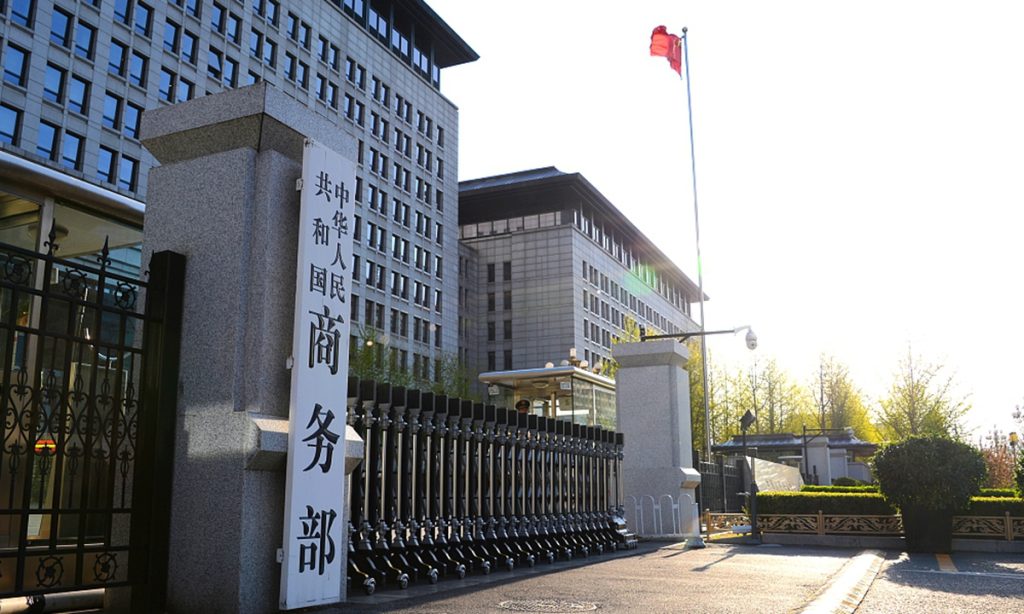Canada escalates trade row ‘at risk of China’s countermeasure’

Canada has moved to impose additional tariffs on more Chinese products including batteries, semiconductors and critical minerals regardless of a consultation request from China at the WTO, marking a further escalation in trade tensions that will see the knot tightened between the two countries.
Chinese observers blasted Canada's risky move following in the US' footsteps, saying it indicates that its trade policies are increasingly unfriendly to China, and that it may further expand tariff measures on Chinese goods.
However, Ottawa's escalation of economic and trade tensions with the world's second-largest economy will likely incur countermeasures from China, they said.
Observers urged Canada to maintain its own strategic autonomy, and act as a responsible country to develop its China policies by prioritizing the well-being of its people and stimulating the vitality of the Canadian economy.
Escalating trade tensions
Canadian media outlet The Globe and Mail reported that Canadian Finance Minister Chrystia Freeland said on Tuesday that the required consultation period to impose tariffs on more clean-energy goods coming from China are set to begin on the same day.
Freeland said now a 30-day Customs Tariff Act review will begin to study the need for tariffs on batteries, battery parts, semiconductors, critical minerals and metals and solar products, according to the report.
The Chinese Ministry of Commerce (MOFCOM) on late Wednesday slammed Canada's move of blindly following certain country to take unilateral suppression measures against China. It hinders normal economic and trade cooperation between Chinese and Canadian enterprises, severely impacts bilateral economic and trade relations, and seriously undermines the global economic system and trade rules.
"China will take all necessary measures to safeguard the legitimate rights and interests of Chinese enterprises," a MOFCOM spokesperson said.
"It's no surprise that Canada is expanding tariffs on more Chinese goods, as Canada, following the lead of the US, aims to prohibit Chinese new-energy products while establishing a new industrial and supply chain excluding China, citing the excuse of the so-called national security," He Weiwen, a senior fellow from the Center for China and Globalization, told the Global Times on Wednesday.
He projects that Canada will impose additional tariffs on Chinese goods including batteries, semiconductors and critical minerals after the 30-day review, although tax rates might be slightly adjusted.
In violation of its WTO commitments, Canada recently announced a 100 percent additional tariff on Chinese electric vehicles (EVs) and a 25 percent tariff on steel and aluminum from China, effective from October 1.
China on Friday put forward a consultation request to Canada at the WTO over Canada's plan to impose additional tariffs on EVs as well as steel and aluminum products imported from China.
"Canada's tariff threats against Chinese products are dangerous and risky, which underlines that its trade policies are increasingly unfriendly to China," Li Haidong, a professor at the China Foreign Affairs University, told the Global Times on Wednesday.
In the future, Canada may continue to closely follow in the US' footstep to impose higher tariffs on a larger number of Chinese products. However, Canada's actions will likely incur countermeasures from China, Li said.
Strategic autonomy needed
"Even as the US has twice delayed the announcement of a final determination for additional tariffs on a wide range of Chinese products including EVs, Canada is hasty in the imposition of tariffs on Chinese EVs in a bid to demonstrate its loyalty to the US," Li said. He noted that Canada is gradually losing its strategic autonomy.
One day ahead of Canada's announcement of additional tariffs on Chinese EVs and other products on August 26, US National Security Advisor Jake Sullivan traveled to Canada, where he met with Canadian Prime Minister Justin Trudeau and addressed Canada's annual cabinet retreat, according to the White House website.
Sullivan has previously said that the US was hoping that Canada and its other allies would take a coordinated approach to cutting off the sale of Chinese EVs, media reported.
Amid China's rapid development of green industries like the EV and solar power sectors, the US fears it will lose its leading position at the top of the value chain in international trade, and as a result, it continues to weigh pressure on its allies including Canada to curb and suppress China's emerging industries, Chen Fengying, a research fellow at the Beijing-based China Institutes of Contemporary International Relations, told the Global Times on Wednesday.
"We hope Canada will not abandon its own strategic autonomy, and instead will act as a responsible country to develop its China policies by prioritizing the well-being of its own people and stimulating the vitality of the Canadian economy," Li said.
Li warned that Canada's move to politicize trade issues will backfire as ordinary Canadian consumers will have to pay the price, in the same way US consumers had paid after the US imposed higher tariffs on Chinese products several years ago.
"It's Canada's illusion that it can strengthen its own economy by bowing to the US and containing China's development," Li noted.
Trade between China and Canada dropped by 0.5 percent year-on-year in the first eight months of 2024 to $57.66 billion, reversing the 2.4 percent growth seen in the first seven months, according to data released by China's General Administration of Customs on Tuesday.
It is the high time now for Canada to abandon its ideological discrimination and the mentality of bloc politics to resume nondiscriminatory trade ties with China on the basis of WTO rules, He Weiwen said.